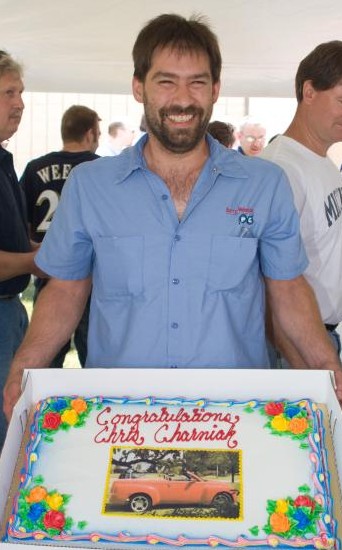The most important thing a leader can do is listen to people inside the business.
Talking with those on the front lines to understand the impact of our leadership initiatives is one of the most important ways I spend my time. Not long ago, I sat down with a group of machinists at our Paper Converting Machine Company in Green Bay, WI. When Barry-Wehmiller acquired the business back in 2005 it was near bankruptcy; its once cohesive culture was fragmented and dispirited. I asked those assembled if they felt things had changed since the acquisition and implementation of our people-centric initiatives.
The response from Chris, a machinist who has been with the company for 15 years, stopped me in my tracks.
I used to feel like a robot,” he says. “I would come in and punch the time clock, run the machine program that the computer told me to run, eat lunch when the bell rang, and just watch the machine run over, and over, and over again. The only way to get through a day like that was to shut down my mind and body–like a robot, expending the least energy possible until someone hit the ‘Off’ button."
His comments made me wonder how many people across our country and around the world turn to robot mode just to get through the day. How many are treated like robots because of traditional managers and archaic business systems?
I asked Chris what made things different.
“I participated in my first 7S event, our process to improve workplace organization,” he explained. “On day one I just sat there, still acting like a robot. But by the third day of the event, I could see that they actually cared what I thought. I was able to get some extra tools and racks for my machine that I had needed for the last five years. For the first time, I was allowed to make my work easier, cleaner, and safer. Once I got started I didn’t want to stop improving my work environment. People began coming over to my area and complimenting me on how great it looked. That might have been the first compliment I received at work in five years.
“A few months later, our continuous improvement leaders asked for volunteers willing to learn how to lead 7S events. I jumped at the chance and found myself in a company-wide leadership development program alongside directors and department leaders. I learned so much and realized how many people in this company wanted to make it better. I became part of creating the most organized machine shop in the company. Our customers come through and tell us how impressed they are.”
I then asked, “So you no longer feel like a robot?”

“It’s hard sometimes,” Chris replied. “Days get long; we get distracted. But because of my work as a 7S facilitator, I was recognized for my leadership in front of everyone in our factory. When a tough day comes along and I start going back to robot mode, I remember how it felt to be recognized for my contributions and leadership. I can’t be a robot if I want to make someone else feel like that.”
What would American manufacturing look like if we focused less on people performing like robots and more on bringing out the best in them by offering them meaningful work?
Chris, a vibrant and intelligent young man, had so much more to offer our business than he was allowed to give.
His personal journey is a vivid example of what we’ve learned at Barry-Wehmiller: we’ve been paying people like Chris for their hands for years when they would have given us their heads and hearts for free if we’d known how to ask.
The tools of lean coupled with people-centric leadership allow us to ask those at the front lines to engage their heads and hearts in meaningful work. We ask them to partner with us in pursuit of our shared vision. We recognize and celebrate their contributions. They see that what they do and who they are matters.
We are stewards of each life that comes under our care through our leadership. We owe them much more than work that turns them into robots.